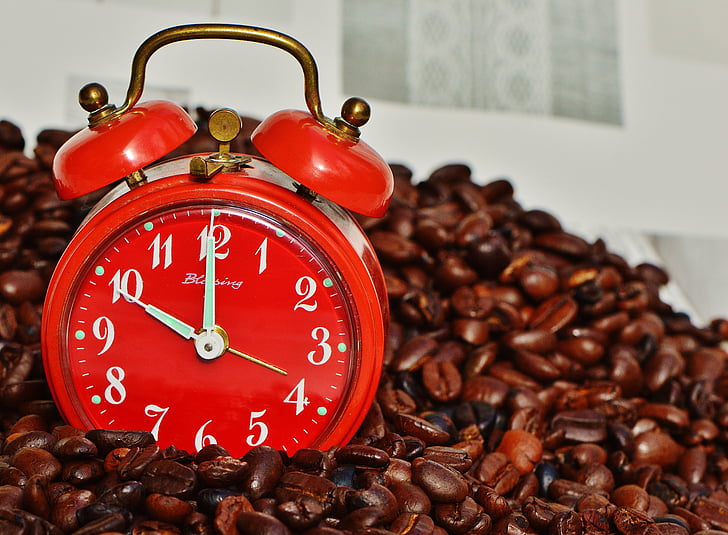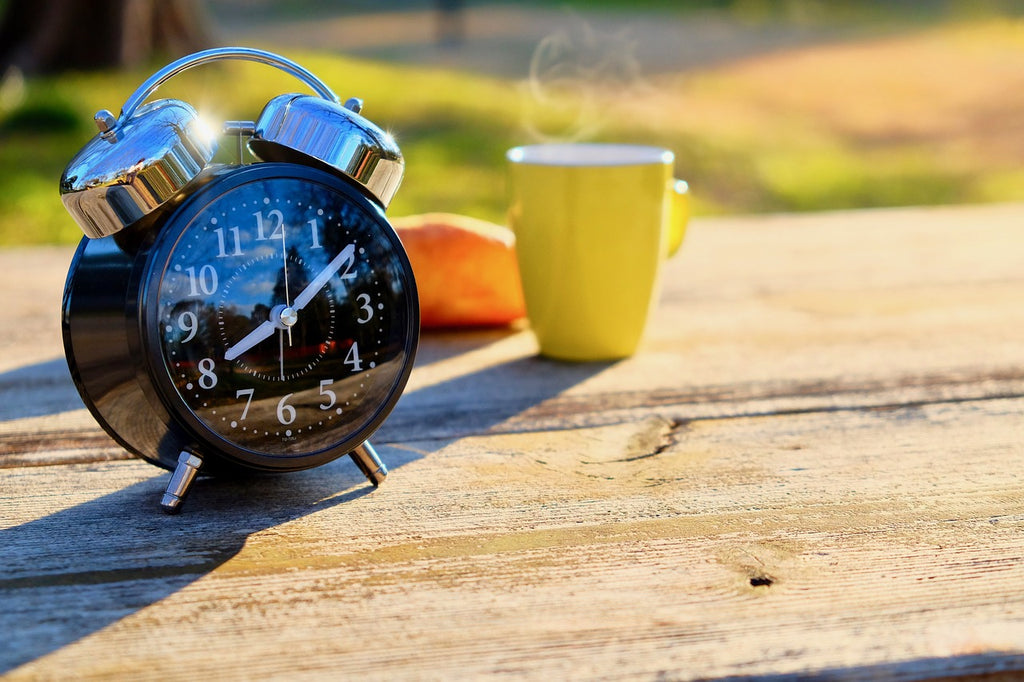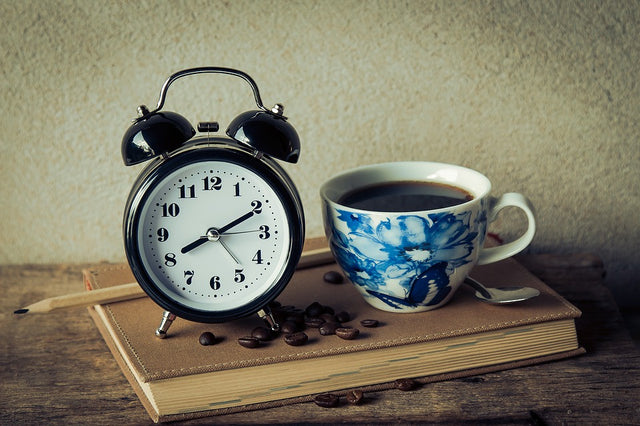When is the Best Time to Drink Coffee?
When you’re a real coffee lover, it always feels like coffee o’clock! You probably want a good brew as soon as you wake up, and another in the afternoon to give you an energy boost to get you through the day. But did you know, this is probably not the most effective time for you to be drinking coffee?
Impact of Hormones
While we all have different reactions to caffeine and the way it affects our bodies, we are all guided by the circadian rhythm, our internal clock that tells us when its time to eat, sleep and wake up. The circadian rhythm involves when certain hormones are released in your body, affecting feelings of sleepiness or stimulation, for example.
One of the hormones released during the day is cortisol, a hormone that helps us to feel awake and alert. Our cortisol levels peak a few times each day, typically between 8am and 9am, 12 and 1pm and 5.30pm and 6.30pm.

Cortisol and Caffeine
When you drink coffee during moments when your body has high levels of cortisol, you are likely doing more to reduce your alertness than to boost it. This is because when you drink coffee during a peak of cortisol, the effects can be suppressed, with a tolerance to caffeine being developed.
Caffeine can also interfere with the production of cortisol, meaning you become increasingly reliant on coffee to wake you up, rather than your in-built wake-up hormones!
Therefore, it is best to avoid drinking coffee during these times.

When Should You Drink Coffee?
Instead of drinking coffee at peak cortisol times, you should enjoy your brew between these peaks. By drinking coffee between the peaks, you’re giving yourself a little energy boost to supplement the alertness you gain from your hormones.
So, instead of grabbing a morning cuppa at 8am, wait until around 9.30am to get a better boost. Likewise, your afternoon wake-up drink should be enjoyed a little while after lunch – somewhere between 1.30pm and 5pm!
No matter what time you wake up, as soon you awaken, your cortisol levels increase by around 50%. Therefore, you should always avoid coffee for at least an hour after you wake up.

When Should You Stop Drinking Coffee?
Another important thing to consider is when you should have your last cup of coffee for the day. Some people cut their coffee consumption right after lunch, whereas others will enjoy an after-dinner sip in the evening.
It is important to remember that caffeine affects your body for up to six hours after you last had a sip of coffee. Therefore, a late afternoon or evening brew could seriously disrupt your sleep. This is why many coffee lovers will switch to decaf later in the day, or simply avoid coffee altogether.
We know it’s not always easy to get a quality cup of coffee right when it suits your body clock, which is why having a travel coffee maker, like the AeroPress, is so handy! With a compact, on-the-go coffee maker, you can avoid dips in your energy by always being prepared with a fresh cup of coffee!




0 Comments
There are no comments for this article. Be the first one to leave a message!